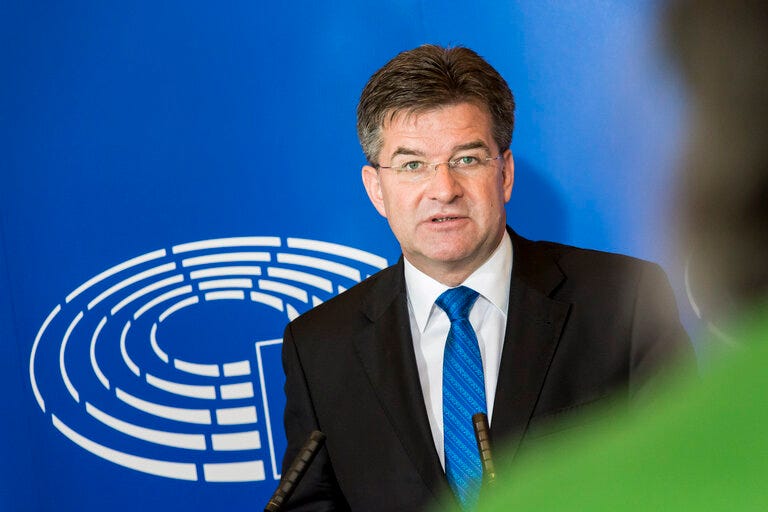Miroslav Lajcak's Failed Leadership and EU's Credibility Crisis in the Western Balkans
Miroslav Lajcak's biased leadership in the Western Balkans has damaged EU's credibility, undermined progress, and perpetuated a cycle of mistrust. The region deserves better than this flawed envoy.
In a recent European Parliament Foreign Affairs meeting, the EU's Western Balkan Envoy, Miroslav Lajcak, faced scathing criticism from Austrian MEP Thomas Waitz. The exchange shed light on Lajcak's blatant bias towards Serbia and the detrimental impact it has had on the credibility of the EU-led dialogue in the region since his assumption of office in 2020.

Waitz posed a fundamental question to Lajcak, challenging the notion of considering an unsigned agreement as a success. He rightly questioned the basis on which Lajcak assessed his work over the past four years and demanded an explanation for the lack of tangible progress. The MEP eloquently exposed the flaws in Lajcak's presentation, highlighting the envoy's troubling tendency to overlook Serbian aggression while focusing on provocations from the Kosovar side.
Waitz also said that the move by Prime Minister Kurti regarding the Albanian elected mayors was a political misstep. However, he expressed deep disappointment in the way Lajcak handled the situation. By disproportionately condemning Kosovo while neglecting Serbian aggression, Lajcak undermined the credibility of the EU's stance and disregarded the aggressor-victim dynamic that ought to guide such assessments.
The MEP raised concerns about Lajcak's failure to address the Serbian side's responsibilities. Despite listing various demands for Kosovo, Lajcak conveniently omitted any mention of Serbia's obligations. This one-sided approach further eroded trust and hindered progress in the region. Moreover, Waitz rightly questioned the message being sent to the thousands of people in Serbia who are actively opposing the ruling regime of Vucic. Lajcak's inability to effectively address the continuous aggression and Russia's influence on Serbia only served to discourage those seeking democratic change.
It is crucial to reflect on Lajcak's role and assess whether his actions have been helpful or detrimental to the region's prospects for peace and stability. By turning a blind eye to Serbian transgressions and consistently favoring one side over the other, Lajcak has failed as an impartial envoy. His biased approach has not only hindered progress but also damaged the EU's credibility in the eyes of the Western Balkan nations.
Miroslav Lajcak's leadership has proven ineffective, and his tenure has been marred by a lack of objectivity and an inability to foster genuine dialogue.
Miroslav Lajcak's tenure as the EU's Western Balkan Envoy has been marked by a clear bias in favour of Serbia, a failure to acknowledge Serbian aggression and a disregard for the principles of fairness and objectivity. His leadership has undermined the credibility of the EU-led dialogue process and has hindered progress in the region. The European Union must urgently reevaluate its approach and appoint an envoy who can restore trust, promote genuine dialogue, and work towards a fair and lasting resolution in the Western Balkans. Anything short of that would be a disservice to the region and a blow to the EU's credibility on the global stage.
The region deserves better than an envoy who undermines the principles of justice and fairness that the EU claims to uphold.




